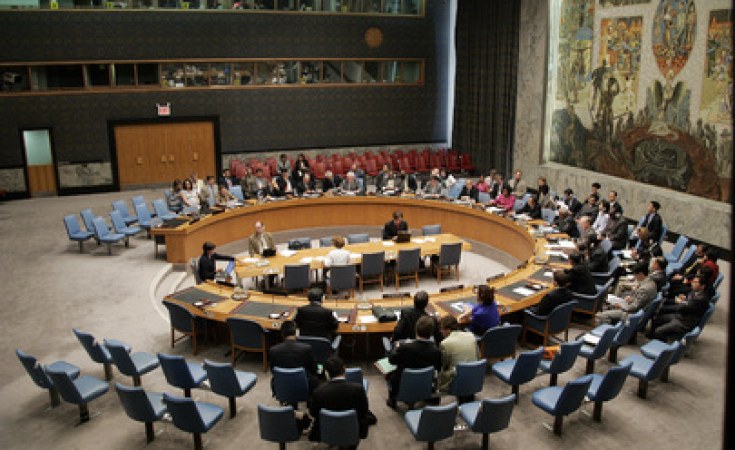Diplomatic efforts to ease the crisis in Mali are being stepped up at the United Nations this week, against the backdrop of warnings that the situation in the country will deteriorate if action is not taken by the end of the month.
A high-level meeting on the Sahel region is scheduled to take place as world leaders gather in New York for the opening sessions of the UN General Assembly in New York.
Mali has been in turmoil since March, when a military coup overthrew President Amadou Touré, the democratically-elected leader, and a range of rebel forces seized control of areas across the north of the country.
In recent days:
- Mali's defence minister announced that the transitional government had agreed to the deployment of troops in Mali from the Economic Community of West Africa (Ecowas);
- the French foreign minister announced in New York that the transitional government wanted the Security Council to approve international intervention in support of its efforts to regain control of the north, and
- The UN Security Council said it was ready to "consider a feasible and actionable proposal from Ecowas" for deploying a regional stablization force in the country.
However, Reuters reports that Western diplomats have privately expressed doubts over current Ecowas plans and that the Security Council is unlikely to approve military intervention until the regional body provides a more detailed strategy.
In a report issued ahead of this week's UN talks, the Brussels-based International Crisis Group (ICG) warned that "all scenarios are still possible" in Mali, "including another military coup and social unrest in the capital".
There was a risk, ICG warned, of chaos "that could allow religious extremism and terrorist violence to spread in Mali and beyond." It said neither the interim president, Dioncounda Traoré, the prime minister, Cheick Modibo Diarra, nor the military officer who led the coup, Captain Amadou Sanogo, had the popular legitimacy or the ability to prevent the situation deteriorating.
The ICG recommended a series of steps aimed at reconciling the positions of Ecowas member states on the crisis, providing a "roadmap" towards reuniting the country and facilitating reconciliation within the army to stave off another coup.


